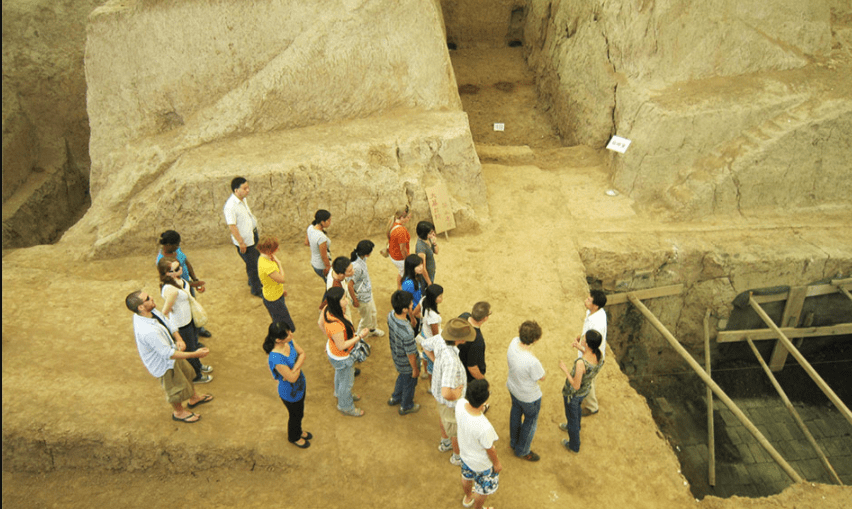Course Dates June 16 – July 20, 2024
Apply By April 1
ifrglobal.org/program/china-yangguanzhai
The Yangguanzhai Neolithic Archaeological Project focuses on one of the largest known prehistoric villages in China, dating to the Middle to Late Yangshao period (4,000-3,000 BCE). Yangguanzhai is located in the Jing River Valley, approximately 25 kilometers north of the ancient city of Xi’an in northwest China. Excavation of 18,000 sq. meters has revealed a moat, a row of cave dwellings, subterranean houses, child urn-burials, and extensive pottery kilns. Whereas earlier excavations focused on exposing large architectural features, current investigations are focused on evidence for changes in how the Neolithic settlement was used over its long history of occupation. For example, recent analyses of local stratigraphic data and samples collected with micromorphological methods are revealing shifts in uses of key features like moats and pits. These and other data are essential to a fuller understanding of life at different stages of Yangguanzhai’s history and provide an empirical foundation for exploring why behavior changed over time.
The Yangguanzhai project makes evident how archaeological inquiry is truly a multidisciplinary endeavor. Learning and training alongside local Chinese archaeology students, participants in this program are introduced to micromorphological, paleoethnobotanical, zooarchaeological, and geochemical methods.This field school promises a full immersion into the practice of Chinese archaeology through lectures, museum visits, and training in methodologically rigorous field investigations with experienced Chinese archaeologists.
TOTAL COST: $5,470





